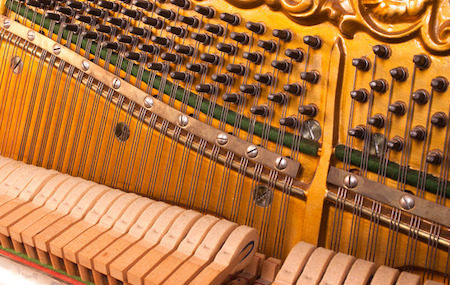A piano is not just a musical instrument but a work of art. It requires great care and attention to keep it in top condition.
If you are a piano owner, you know the importance of keeping your piano tuned, repaired, and in top playing condition. Consider these tips to guide you through the process of maintaining your piano.
Tuning
Tuning is vital to keep your piano in top condition. A piano is a complex instrument with thousands of moving parts that must work together in perfect harmony. With a trained professional tuning it from time to time, it can retain its voice.
Each time a piano is played, the strings stretch and loosen, causing the piano to go out of tune. A professional tuner will adjust the tension of the strings, bringing the piano back into tune. It is important to note that the cost of tuning a piano can vary based on the condition of the piano and the location of the piano tuner. It should be tuned several times during its first year, once or twice after that, depending on your playing conditions.
Repairs
Even with regular tuning and maintenance, a piano may require repairs. It is important to address any issues with your piano as soon as possible, as they can worsen over time and potentially cause further damage. Some common problems that require repair include broken strings, cracked soundboards, and sticky keys.
Broken strings can cause a piano to go out of tune and need to be replaced by a professional. Cracked soundboards, which can occur with changes in humidity, can also affect the piano’s tone and require professional repair. Sticky keys can be caused by various factors, including dirt and dust buildup, and can be fixed by cleaning the keys or adjusting the action.
Cleaning
Regular cleaning is essential for keeping your piano in top condition. Dust, dirt, and debris can accumulate inside the piano and affect its tone and performance. To clean your piano, use a soft, lint-free cloth to dust the piano’s exterior, including the keys and pedals.
To clean the piano’s interior, use a soft brush or vacuum to remove any dust or debris. Be sure to avoid using any cleaning products or liquids on the piano, as these can damage the finish or affect the piano’s tone.
Humidity Control
Maintaining proper humidity levels is crucial for keeping your piano in top condition. Extreme humidity levels can cause the wood to expand or contract, affecting the voice and tone of the piano. To maintain proper humidity levels, use a humidifier in the winter months and a dehumidifier in the summer months. You can also purchase a hygrometer to monitor the humidity levels in the room where the piano is located.
Is your piano in top condition?
Keeping your piano tuned, repaired, and in top condition requires dedication and attention to detail. By having your piano tuned regularly, you can ensure that your piano will continue to produce beautiful music for years to come.
Remember, a well-maintained piano is not just a musical instrument; it is a work of art that deserves the utmost care and attention.


